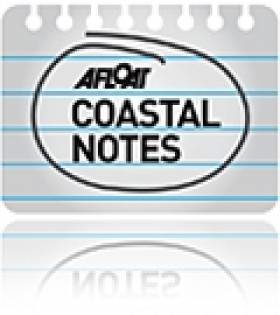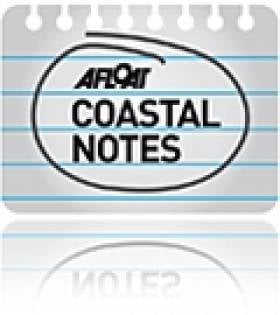Displaying items by tag: Lancashire
New Irish Sea Observation Tower Opens In UK
#IrishSea - A new observation tower on the Lancashire coastline with views over the Irish Sea has opened a year after construction began.
BBC News reports that the Rossall Point Observation Tower, which reaches a height of 14 metres (46ft), will act as a base for the UK's National Coastwatch Institution.
As reported last year on Afloat.ie, a viewing platform at the top will be open to the public providing ample vistas of the Irish Sea's marine wildlife for birdwatchers and more.
The view from the top will also be projected on a screen in the education centre to be located in the tower's ground floor for those whose mobility prevents them from accessing the top level.
New Observation Tower Will Give Views of the Irish Sea
#COASTAL NOTES - BBC News reports that construction has begun on a new observation tower on the Lancashire coastline with views over the Irish Sea.
The new tower at Rossall Point, which will reach 14 metres (46ft) upon completion, will act as a base for the UK's National Coastwatch Institution.
A platform at the top will be open to the public providing ample vistas of the Irish Sea's marine wildlife for birdwatchers and more, while the view from the top will also be projected on a screen in the education centre to be located in the tower's ground floor.
Proposed Irish Sea Conservation Zones
The area include the inshore waters of Merseyside, Lancashire and Cumbria and offshore waters of the Isle of Man, Wales, Northern Ireland and England. One of the zones is a 187 square km stretch of deep water between Northern Ireland and the Isle of Man.
In order to gain a greater understanding of the proposed zones, the report commissioned a Regional Stakeholder Group which drew from a diverse range of interests in the Irish Sea. Among the stakeholders included were the Royal Yachting Association, the fishing community and ports authorities. The review identified the size, shape and locations of the proposed 10 ten new Marine Conservation Zones. For the first time, the zones included inshore water of the Irish Sea project area as well as offshore.
"This is a real milestone for the project, with potential Marine Conservation Zones identified in both inshore and offshore waters", said Greg Whitfield, project manager at Irish Sea Conservation Zones.
"It is now really important that people take a look at the potential zones and give us their feedback on them. The better the information we have, the better the Marine Conservation Zones that are recommended by the regional stakeholder group will be."
Each of the marine conservation zones are designed to protect nationally important marine wildlife, habitats and geology. In addition they are designed to have the least impact possible on people's activities, but some restrictions will apply as the zones must meet guidelines for protecting species and habitats.
Members of the public are being invited to participate and will be considered as the second project continues to refine its proposals. The report is only a snapshot of the work so far. It does not contain concrete recommendations for the locations of Marine Conservation Zones (MCZ) in the Irish Sea, and the potential zones shown in the report are described as tentative and liable to change.
The Irish Sea Conservation Zone project will be releasing a third report before the Regional Stakeholder Group finalises its recommendations. The reports are delivered to the Science Advisory Panel. The independent body is comprised of expert scientists whose main role is to evaluate the potential of MCZs against ecological criteria.
The third progress report will be made available in February 2011. Its final recommendations will then be presented to the UK government in June. Following that a formal public consultation on the proposed MCZs are to take place in late 2011 and early 2012.
For information on the Second Progress Report including feedback forms can be downloaded from HERE or by calling 00 44 (0)1925 813 200































































